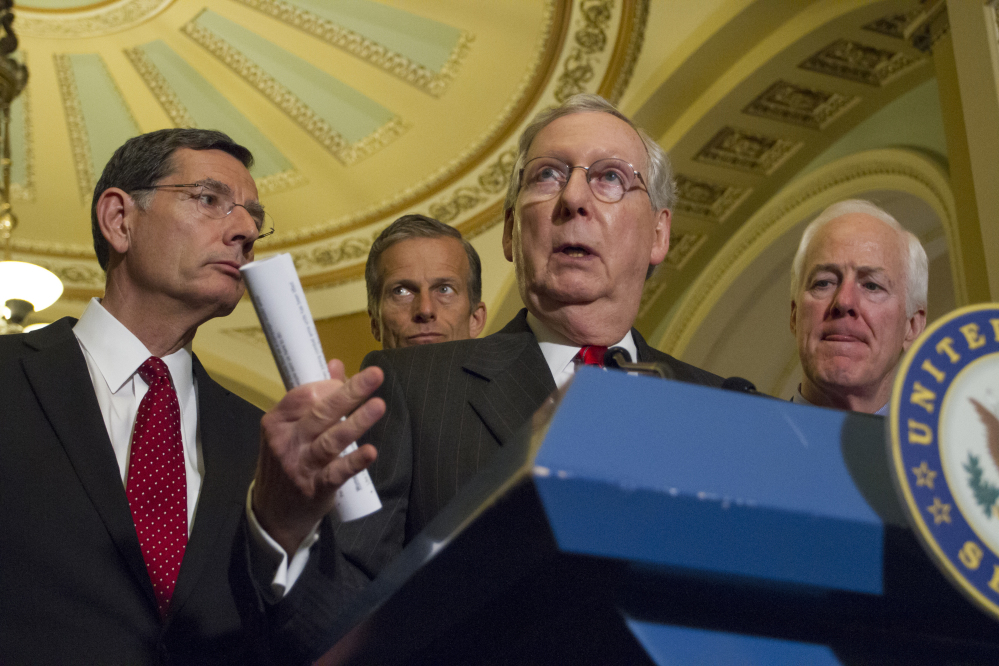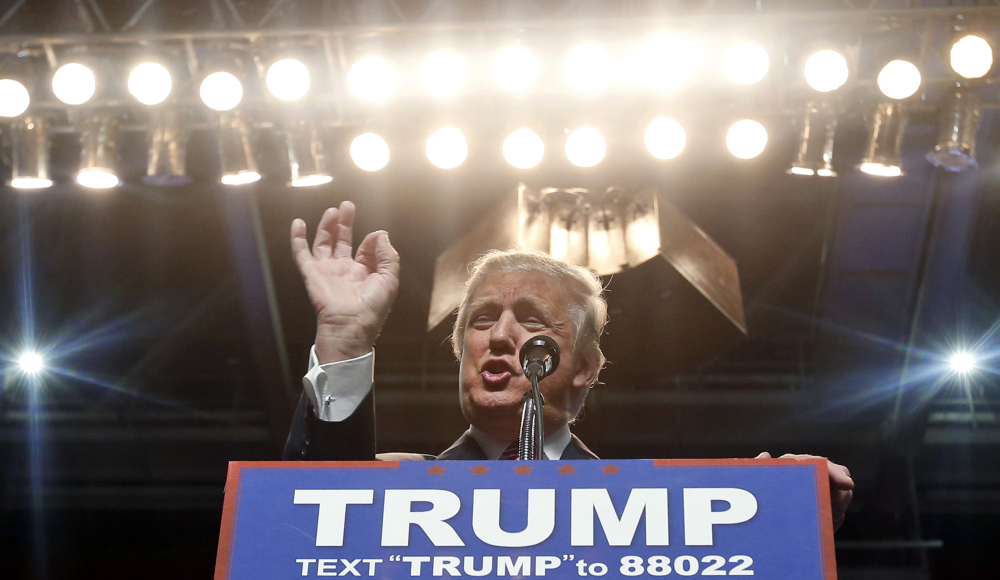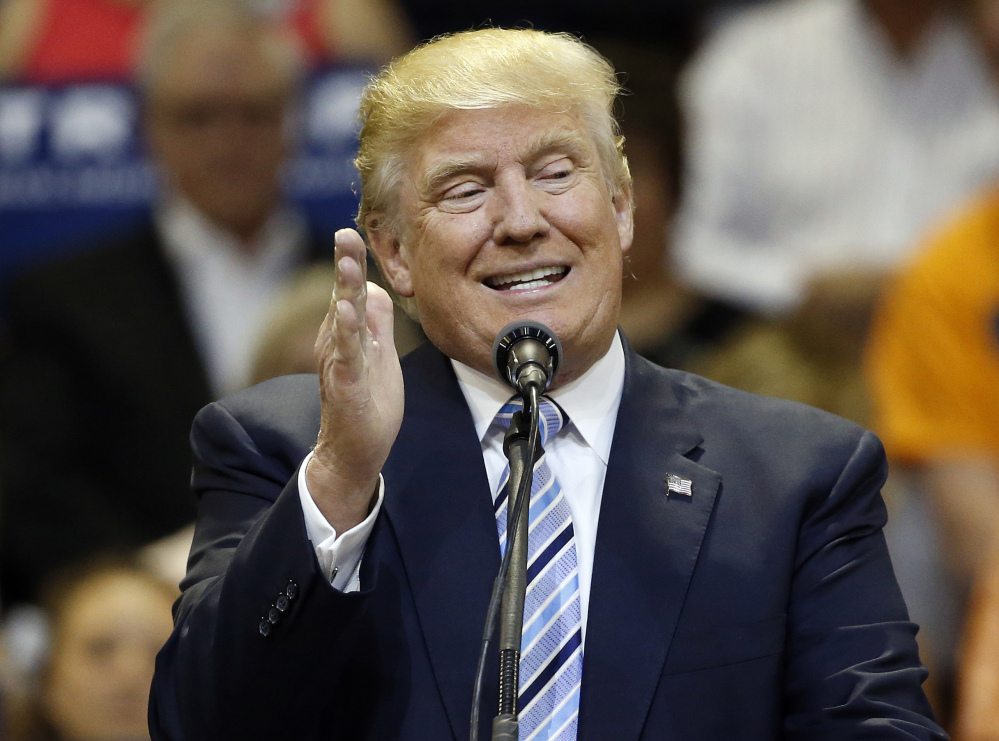He says his comments were ‘miscontrued’ as racist, but insists the judge cannot treat him fairly.
Under a deluge of criticism from fellow Republicans that peaked on Tuesday, Donald Trump said he intends to stop talking about a Latino federal judge he has repeatedly admonished on the basis of his ethnicity and that his words were “misconstrued.” He did not apologize for his remarks.
Trump’s new position came only minutes after Sen. Mark Kirk of Illinois became the first vulnerable Republican senator to abandon support for the real estate mogul and several hours after Speaker Paul D. Ryan, R-Wisconsin, said Trump’s attack on the judge was “the textbook definition of a racist comment.”
In a lengthy written statement issued after an uncharacteristically quiet day on social media, the presumptive GOP presidential nominee said that his repeated comments about U.S. District Judge Gonzalo Curiel were “misconstrued as a categorical attack against people of Mexican heritage.”
Trump said he does “not feel that one’s heritage makes them incapable of being impartial.” But he reiterated that he believes he has been treated unfairly by Curiel in two fraud cases against his defunct Trump University real estate seminar business and is therefore “justified in questioning whether I am receiving a fair trial.”
He concluded: “While this lawsuit should have been dismissed, it is now scheduled for trial in November. I do not intend to comment on this matter any further.”
Trump’s sustained ethnic attacks on Curiel had quickly become a litmus test and near-existential crisis for the Republican Party, which is struggling to balance a need for minority support with Trump’s racially charged campaign. The episode also stretched the limits of Trump’s fraying relations with many of the people who will officially nominate him in Cleveland in six weeks: Their standard-bearer had suddenly forced them to choose between being disloyal to the party and backing a candidate who attacks a judge’s ethnicity as part of a petty personal feud.
Trump first lambasted Curiel months ago when he was part of a crowded primary field. But after clinching the nomination, he revived the assault in late May at a rally in San Diego, going on an extended, 11-minute monologue about the case and mentioning that the judge “happens to be, we believe, Mexican.” Curiel was born in Indiana to parents who emigrated from Mexico in the 1920s.
In media interviews in following days, Trump continued to harangue Curiel in more explicit terms. He told the Wall Street Journal that Curiel’s Mexican heritage presented an “absolute conflict” given that the mogul wants to build a wall along the U.S.-Mexico border.
“I’m building a wall,” Trump said. “It’s an inherent conflict of interest.”
The backlash from within the Republican Party gained force and quickly overshadowed other messages party leaders were trying to push. Moreover, Tuesday marked the official end of the Republican primary season – a moment many had hoped would mark an end to any serious intraparty skirmishing.
Shortly before Trump issued his statement, Senate Majority Leader Mitch McConnell, R-Kentucky, a Trump supporter, said it was “time to quit attacking various people you competed with or various minority groups in the country and get on message.” McConnell said Trump “has an opportunity to do that; this election is eminently winnable.”
“I hope that’s what he’ll do,” McConnell added. “We’re all anxious to hear what he’ll say next.”
Many Republicans continued to occupy a gray area between denouncing Trump and warmly supporting him, highlighting the angst many Republicans feel about the election,
“They’re racially toxic, and he needs to get on to the general election, and we need to win,” Sen. Tim Scott of South Carolina, the only black Republican senator, said of Trump’s remarks.
Asked whether Republicans should rescind their endorsements of Trump, Scott offered a flat “no” and said he would back Trump.
Sen. Jeff Flake, R-Arizona, who has said he cannot back Trump right now, raised the possibility that Trump could face a revolt at next month’s Republican National Convention in Cleveland as a result of his racial rhetoric. Such a scenario he said, is “certainly more likely now than it was last week.”
Send questions/comments to the editors.





Success. Please wait for the page to reload. If the page does not reload within 5 seconds, please refresh the page.
Enter your email and password to access comments.
Hi, to comment on stories you must . This profile is in addition to your subscription and website login.
Already have a commenting profile? .
Invalid username/password.
Please check your email to confirm and complete your registration.
Only subscribers are eligible to post comments. Please subscribe or login first for digital access. Here’s why.
Use the form below to reset your password. When you've submitted your account email, we will send an email with a reset code.